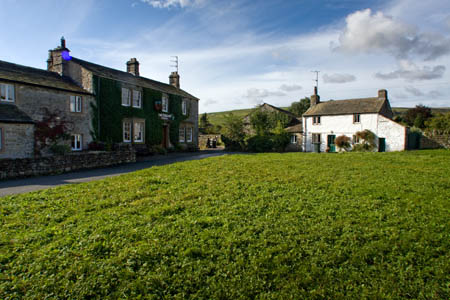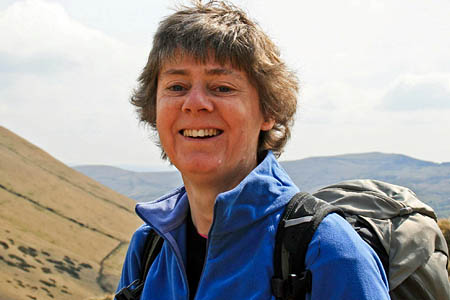Campaigners say they will fight any plans to curb the registration of rights of way and greens.
The Open Spaces Society made its stance in the face of a report by the coalition Government-appointed Independent Farming Regulation Task Force which said the process should be ‘rebalanced’ and costs shared by both sides.
The 152-page report said it wants to encourage ‘better’ regulation in farming and the food business, and much of it is taken up by ruminations on farm inspections, nitrate regulations, the single payment scheme, meat hygiene and the food-processing industry.
But the task force, chaired by former National Farmers’ Union director general Richard Macdonald, also strayed on to the issue of footpaths and village greens.
The Macdonald report said applicants for the designation of new rights of way and of village green be made to pay.
It also said there was a ‘proliferation of inappropriate village green designations’, and that a cut‐off date of 2026 for discoveries of historic routes should be implemented, as originally introduced by the Countryside and Rights of Way Act 2000, with no new footpaths added after this.
But the Open Spaces Society said the proposals were crude and ill informed.
The OSS’s case officer Nicola Hodgson said: “The proposals are crude because they are the work of an obviously vested interest seeking to curtail public rights, and ill informed because they ignore the evidence in relation to village greens and developers, path claims and agriculture.”
Membership of the task force is predominantly from farming and food industry, with two farmers, one ex-chief executive of the NFU in Scotland, a director of policy at the Game & Wildlife Conservation Trust, a board member of Warburtons bakers, a buyer with Waitrose, and an animal welfare researcher. It also includes British Wool Marketing Board member and former marketing agency owner Judith Donovan.
Ms Hodgson continued: “The task force has concluded that applications for village greens and public paths are stifling development, yet the group has not carried out an independent survey to back up this sweeping statement, nor has it consulted the Open Spaces Society for its views.
“An independent survey of village green applications published by the Department for Environment, Food and Rural Affairs in 2009 showed no evidence that people were applying for greens in order to thwart development.
“People apply for greens and paths on the grounds that they have used them for 20 years, without being stopped or asking permission. Once the 20 years’ use has been achieved, the land is a green, and the route is a public path, regardless of whether it is recorded as such.
“The registration of greens and paths is merely confirmation of their status, and the applicants should not be required to pay for the process as suggested by the task force.”
Ms Hodgson said there is no proliferation of inappropriate village green designations. She said: “[The task force] wants the Government’s proposed green-space designation to deal with its concerns about greens.
“We have argued that the green-space designation is badly needed in addition to the process for registering land as greens, which is a recognition and recording of historic use. We have also suggested small amendments to the greens-registration process to speed it up and make it more efficient,” she added.
The case officer continued: “The group states, in its letter to the Minister for Agriculture and Food Jim Paice: “We have only looked at regulations unique to food and farming.” But the regulations for greens and public paths are certainly not unique to food and farming, so we cannot see why the task force was concerned with them.”
OSS general secretary Kate Ashbrook said: “We are also dismayed about the task force’s attack on public paths.
“It wants the Government to implement the cut-off date of 2026 for the claim of historic paths, which entirely favours landowners, but it does not call for counterbalancing measures in the interests of the public.
“Implementation of the cut-off date was only a small part of the national stakeholder group’s report Stepping Forward. This group, which consisted of representatives of user groups, landowners and local authorities, produced an agreed package of measures to improve the process for recording historic rights of way.
“However, the group was determined that these measures must be implemented as a package, and that Government must not pick and choose from them.
“There is no evidence that the claiming of public paths is in general interfering with development.
“The task force seems paranoid about the effect of greens and paths on its interests. It should accept that where historic rights exist they should be recorded and available for the public to exercise.
“We shall fight any plans to do away with the system for registering greens and paths which are of vital value to the public.”
The Macdonald report has received a broadly positive response from the farming community, and Defra minister Jim Paice warmly welcomed the report.
Defra said: “The Government will now carefully consider the report’s recommendations, and will provide an initial public response and Parliamentary statement in autumn 2011, followed by an updated final response in New Year 2012.”

